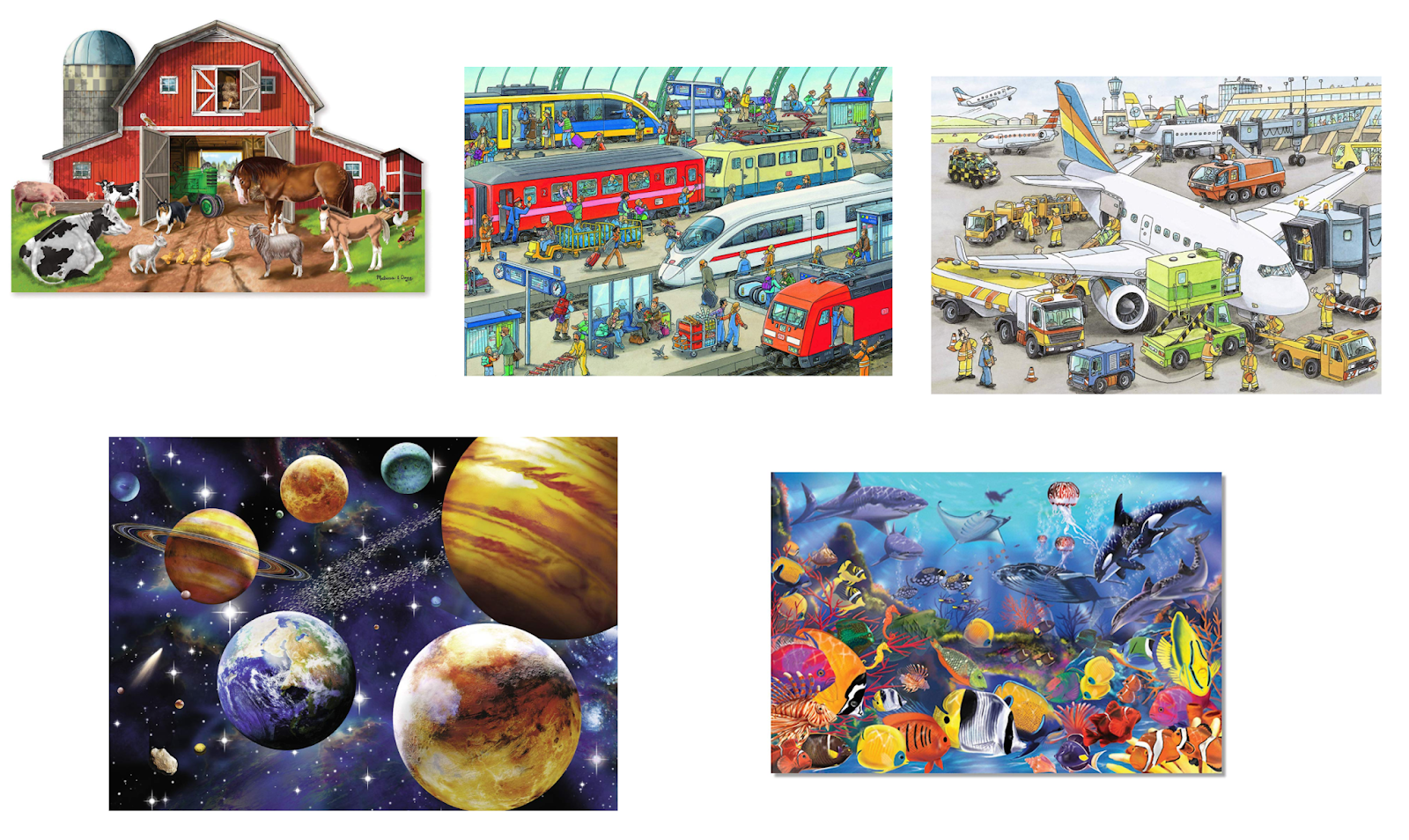Nora is in a bit of a puzzle phase lately. Her interest in puzzles has been something that has sort of ebbed and flowed throughout the years. But overall, she's always been my child with the most interest and skill for puzzles. And, I love that! Puzzles are a great, engaging material. They help to promote concentration, fine motor skills, repetition, and a growth mindset - among other skills. I especially love puzzles for visual spatial development, and learning to see the whole.
But, this isn't the only way to use or develop these skills! As a parent of a child with ZERO interest in puzzles (Henry), I always feel like this should be mentioned. I get lots of frantic questions about puzzles and what to do if your child just shows no interest. And, my answer is always - follow your child's interests. Your child will be just fine!
This post contains affiliate links at no cost to you.
Ok, back to puzzles for preschoolers. There are two types of puzzles I wanted to mention for preschoolers - compound puzzles, and jigsaw puzzles.
Compound Puzzles
These are puzzles that fit together to form one picture but are not jigsaw puzzles. These are common types of puzzles in Montessori children's houses. These puzzles do not have pictures under the pieces, but only fit together one way. Sometimes they have a small peg to make the pieces easier to place and remove. A few common examples of this type of puzzle include the Montessori Botany Puzzles, and the Montessori geography puzzles.
These puzzles can range from simpler images to more complicated larger puzzles - depending on the number of pieces. In the Montessori context, they are often a jumping off point for further exploration on a particular topic. For example, you might have the parts of a leaf puzzle for a younger child in a Montessori environment. But, then that learning could be followed by 3-part cards and/or a booklet giving more information about the parts of the leaf for an older/more ready child.
Here are some examples of compound puzzles: parts of a fish | parts of a flower | parts of a butterfly | USA puzzle map | African Countries Map
I have a couple of these types of puzzles in my home, but not the Montessori specific ones. I find it difficult to find a ton of new puzzles made this way. So, we have some vintage compound puzzles {similar to this} that we do have and use.
Jigsaw Puzzles
These are the most common type of puzzle for older kids. These are the typical interlocking puzzles that range in a variety of sizes and difficulties. Toddlers may even be able to do these types of puzzles depending on their own interest and abilities. This is also the bulk of what we have at home. While these are Montessori friendly, jigsaw puzzles are typically considered toys and not found within a Montessori classroom.
There are so many jigsaw puzzles that it would be impossible for me to make a complete recommendation list. But, when I look for puzzles for my home there are a few things I keep in mind. One, I want beautiful and realistic images. Two, I want quality pieces (either wooden or a nice cardboard). Three, I want a size that is challenging but not too hard for the level my child is at. I'm not going to make any child age to piece size recommendations, because that varies too much child to child. Just follow your own child!
Here are some examples that I love: farm floor puzzle | train station | airport | outer space | under the sea
The jigsaw that Nora is working on was a thrifting find and I don't have any details on it. She typically is doing anywhere from 30 to 60 piece jigsaws at the moment. I'll introduce a 100 piece soon. But, again, theres really no rush and we just go at her pace and interest.
What kind of puzzles is your preschooler into?






